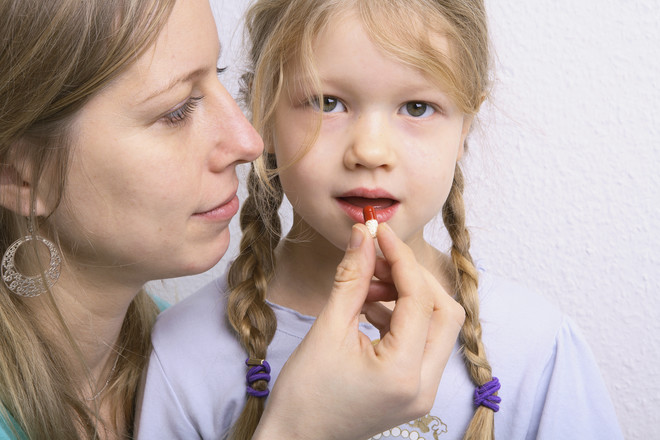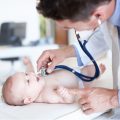 Children should take antibioticstogether with a sparing diet. Photo: Getty The intake of antibiotics does not always adversely affect health, babies are prescribed non-toxic drugs, their use rarely has a side effect.
Children should take antibioticstogether with a sparing diet. Photo: Getty The intake of antibiotics does not always adversely affect health, babies are prescribed non-toxic drugs, their use rarely has a side effect.
What to take with antibiotics for children
The action of antibiotics is aimed at destructionharmful microorganisms. But these drugs eliminate not only bacteria that provoke the inflammatory process in the body, but also the beneficial microflora that lives on the mucous membranes of the mouth and intestines. A decrease in the number of beneficial bacteria leads to the development of thrush, gastrointestinal tract disorders. In addition, after the elimination of microorganisms that cause the disease, the population of other harmful bacteria and fungi may increase. This will provoke the development of new infections with a decrease in immunity. Repeated infection with a bacterial or fungal infection requires another course of antibacterial therapy. How often children can take antibiotics is decided by the attending physician. With frequent use of the same drug, harmful microorganisms stop responding to it and the treatment does not bring positive results. Therefore, parents need to write down in what period and with what antibiotics their child was treated. When using antibacterial therapy, it is important to remember that gastrointestinal tract disorders may be caused not by the action of drugs, but by the diet and additional use of other drugs. Taking antibiotics means avoiding:
- Oily food;
- products that cause fermentation - eggs, legumes;
- smoked products and sausages;
- canned goods.
Milk and fermented milk products duringAntibiotic treatment is allowed for use, but everything should be in moderation. The child should not be overfed or forced to eat when he has no appetite. To prevent disruptions in the gastrointestinal tract, the baby should be constantly given clean water, sugar-free compote or tea. Along with the use of antibiotics, doctors prescribe the intake of drugs containing beneficial bacteria, but they are not always effective during therapy. Pediatricians advise starting to restore microflora after completing the course of treatment. However, some doctors consider the intake of bifidobacteria inappropriate, their effectiveness has not been fully proven. If antibiotics are used to treat infants, it is recommended to put them to the breast as often as possible. The composition of breast milk reduces the negative impact of antibacterial agents. It is not recommended to use antihistamines while taking antibiotics. This is due to the fact that due to the individual characteristics of the body, antimicrobial drugs can cause allergies. Antihistamines will hide this reaction and in the future, with subsequent bacterial infections, the use of this antibiotic will be impossible. In case of an allergic reaction, you should immediately stop taking the antibacterial drug. Remember that such drugs are used exclusively to treat bacterial and fungal infections. Viral diseases are not treated with antibiotics. Read more:









